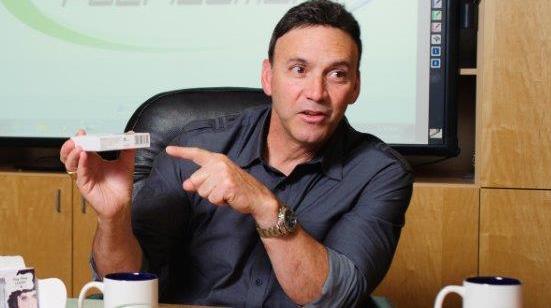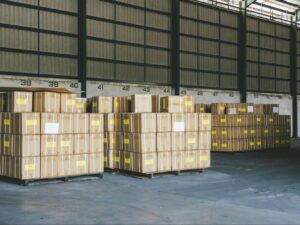
The concern is fed by the headlines: The Wall Street Journal headline begins, “Cargo Delays are Getting Worse”; the Bloomberg headline says, “Containers Piling Up”; the Freightwaves.com headline reads, “Container Ships Now Piling Up at Anchorages off China’s Ports;” and the Today Show headline reads, “Cargo Ships are Backed Up Along US Shores.”
Because of these headlines, the public is looking for an expert analysis. If any company should be up to speed on what’s going on and whether we should be concerned, it would be AMS Fulfillment. To serve their clients well, they need to know the latest news and global happenings with regard to the supply chain.
We have asked John Bevacqua, VP of Logistics at AMS Fulfillment, if he would answer some questions on the subject and he has agreed to do so.
Q: People are reading the news and becoming concerned about the future with regard to obtaining the goods that they need. First of all, should we be shopping for Christmas now?
JB: This is the question that I am asked on a daily basis. As one who has worked in the Supply Chain Industry for many years, I can say without hesitation that there have always been issues, but nothing like we are currently experiencing. The simple explanation is the huge and massive surge in demand for products far outweighs the market’s capacity and the infrastructure that exists today cannot handle this amount of volume flow. This is not going to end soon and there are going to be more shortages of certain goods. Therefore, I say yes to ordering early to be sure you get the items you want if they are of course available today.
Q: Could you talk about what is causing the pile-up at the ports, and is it all ports or just some?
JB: The issues I described above are the main factors. What caused this, is that when the shutdown of the economy occurred due to covid, the demand for products went into overdrive. Now production is coming back online and the manufacturers are trying to keep up and fulfill unprecedented backlogs. The order volumes are larger. The container vessels that move the cargo across oceans are running at full capacity to move this merchandise. Consequently, when you have ports that can only handle certain volume and each port has limited resources and space to store containers, you’re going to have this type of backup. The ports have all become flooded with cargo as they simply don’t have the capacity to handle it.
Q: We hear that a mileage tax is being proposed, which would certainly have an impact on the cost of transportation. What are your thoughts and observations on that issue?
JB: I have not heard too much more about this legislation. However, if the .08 cents per mile was passed, I believe it may offset some of the fuel tax. But let’s say it didn’t and it includes our trucking industry at the .08 cents per mile rate. The cost of products coming across the country would increase. It could cost an extra $240-250 in the movement of your merchandise from one coast to another. If you have several loads a month coming from that same lane of course your cost for this freight would be multiplied by that amount.
Q: Finally, what improvements do you hope for, and do you see any good news regarding the supply chain and fulfillment in general?
JB: With current global supply chain infrastructure being somewhat obsolete, my hope is that it can soon get the facelift and upgrades needed to meet such demand and have the ability to better handle a crisis situation. It’s very unlikely this will end soon. However, there are some signs of the improvements happening at Ports, with the new Government Port Infrastructure Development Grants. This includes infrastructure expansions and the deployment of additional equipment to move freight. The small parcel companies, which support eCommerce are all building up their infrastructures by adding additional equipment, labor, and sortation terminals to better handle the surge of out bound volumes. The trucking and rail industry is one that may take the longest as it has a few more hurdles to recover. They are also doing all they can to add drivers and equipment. Driving is hard work and it sometimes keeps them weeks away from home. Transport companies are now trying to do more to attract the number of drivers and operators needed. The good news is we will most likely have long way to go before the supply chain catches up, however, for the supply chain professionals and shipping companies I think the work has never been more challenging and rewarding at the same time. Supply chain management is no longer a back-office function, largely ignored or taken for granted.
Thank you John B. for shining some light on the subject. We agree that the supply chain function is no longer to be ignored or taken for granted. The general public is realizing the high value of all of this work, from the manufacturers to the cargo ships and rail transportation to the fulfillment companies to the truck drivers and the small parcel companies. Essential workers truly are essential, and they are the heroes of the day.




